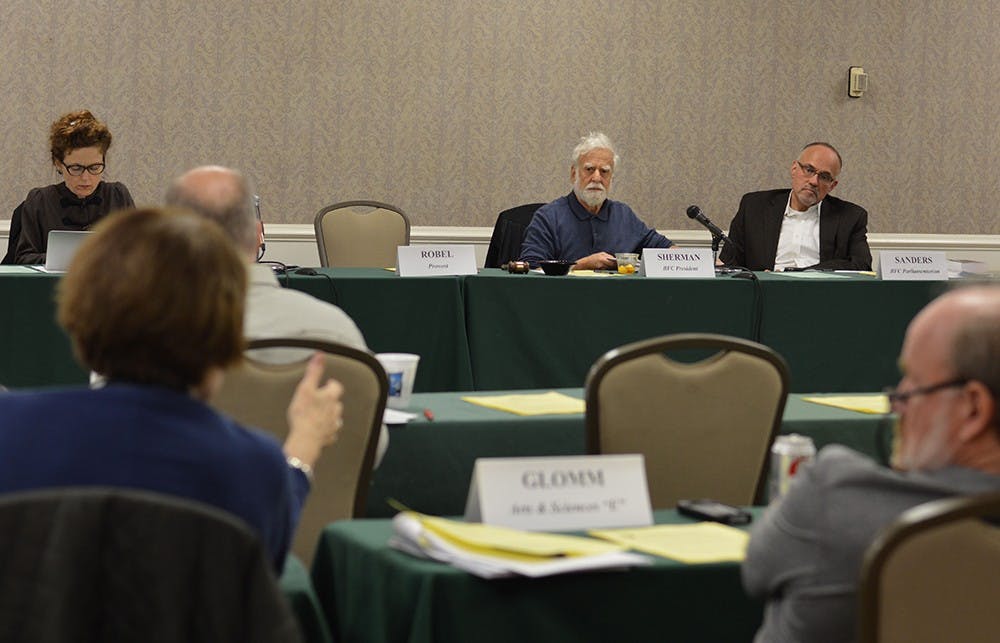The BFC voted to endorse an IU Graduate and Professional Student Organization proposal that calls for the IU Foundation to divest from the top 200 fossil fuel companies within the next five years.
Brady Harman, GPSO president, and Jeffrey Meek, former GPSO sustainability officer, met with Gary Stratten, IU Foundation vice president and chief investment officer, in March.
“Unfortunately, this meeting didn’t go as well as we hoped it would,” Harman said.
Harman and Andrew Bredeson, current GPSO sustainability officer will get a second chance to make their case during a conference call with the IU Foundation investment committee Dec. 17.
The All University Student Association, the Environmental Management and Sustainable Development Association and the Indiana University East Student Government have already shown their support of the initiatve.
The IU-Southeast Student Government, the IU Student Association, the School of Public and Environmental Affair’s Graduate Student Association and the Sustainability Council have also shown their support .
The BFC has now also shown its support of the initiative, adding faculty support to already abundant student support.
“We ask IU to be a leader, set an example, protect its investments and do the right thing,” Bredeson said.
Dennis Groth, vice provost of undergraduate education and co-chair of the general education committee, and Robert Botne , co-chair of the general education committee , also presented on general education requirements.
Of this year’s first-year class, 9.5 percent arrived with sophomore status, up 255 percent from before the implementation of general education requirements, Botne said.
Eighteen and a half percent arrived halfway to sophomore status, up 130 percent from before the implementation of general education requirements, Botne said.
Groth addressed concerns that the quality of credit from high school or community college courses does not match the quality of credit of IU-Bloomington courses.
“(General education is) something that we saw as a foundational and essential element of the IU experience,” he said. “It really raises the question, can it really be an IU experience if it’s largely taken elsewhere?”
Similarly, Groth addressed concerns that the students with lower-level credit from high school or community college courses are not as prepared for higher-level courses as students with lower-level credit from IU-Bloomington courses.
“The outcome has shown that there are differences, but not major differences,” he said.
Groth and Judith Ouimet, associate vice provost for curricular development and assessment, also presented about online course questionnaires.
Since the partial introduction of online course questionnaires, as opposed to paper questionnaires, response rates from students in large classes have increased, while response rate from students in small classes have decreased.
Concern remains that the students responding to the course questionnaires, online or paper, do not accurately represent all students in the class.
The students that respond to the course questionnaires tend to receive high or low grades, Ouimet said, whereas the students that don’t respond to the course questionnaires tend to receive average grades.






